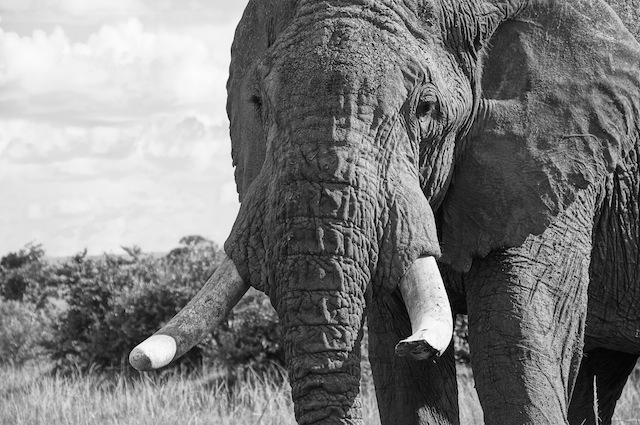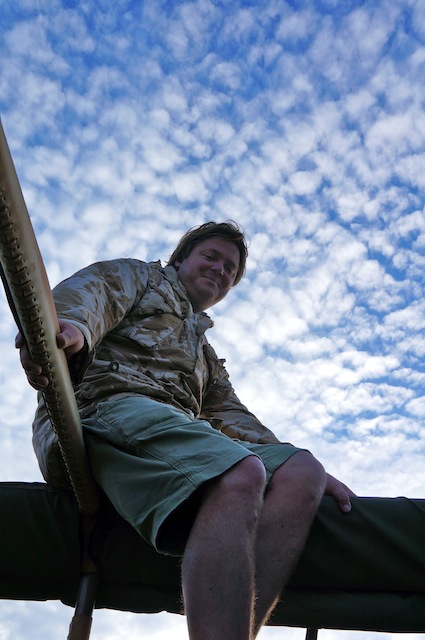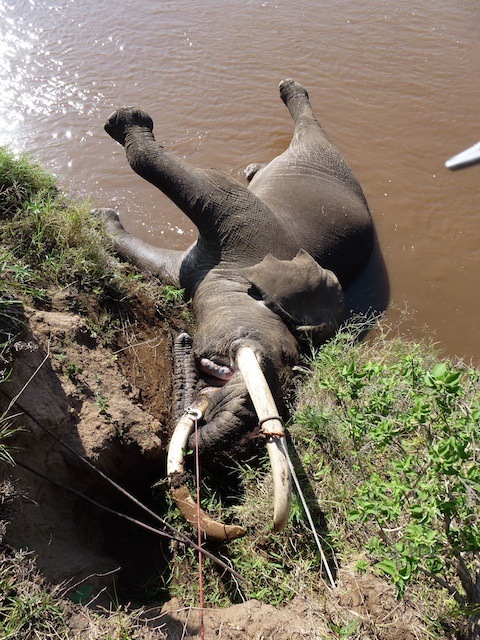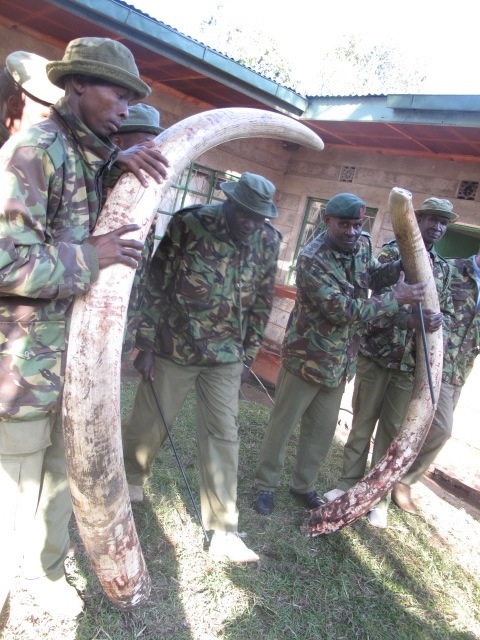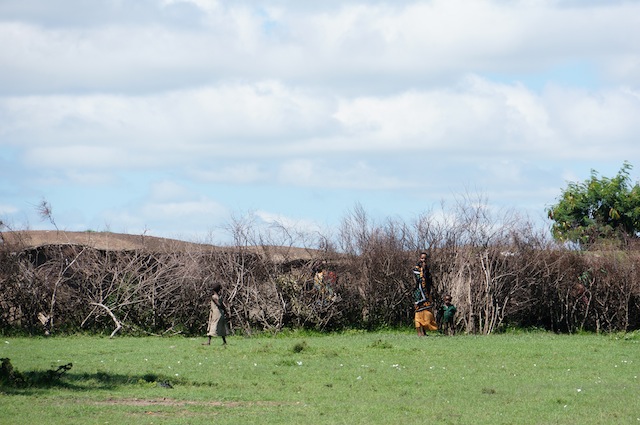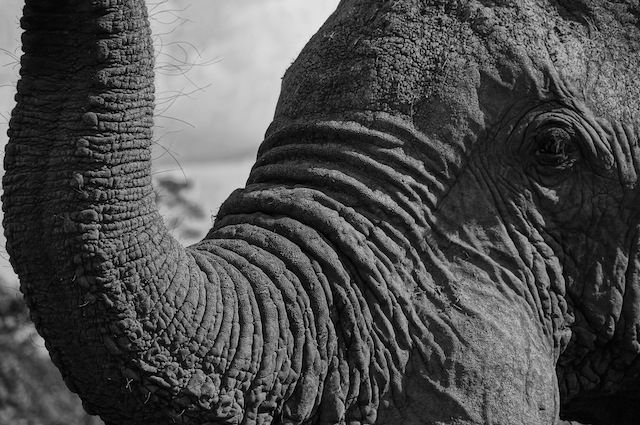The Mara Elephant Project & Wildlife Education, Masai Mara, Kenya
On a rainy day in the Masai Mara, I had the unique pleasure of spending the day with Richard Roberts, owner of Richard’s Camp and a founding partner of Iain Douglas Hamilton’s The Mara Elephant Project (MEP) in conjunction with Save the Elephants. Throughout the day Richard shared the plight of the struggle between the growing local population (The Maasai) and elephants, known as human-elephant conflict (HEC). The MEP began in July 2011 and dedicates itself to tracking elephant movements between and within the greater Mara/ Serengeti.
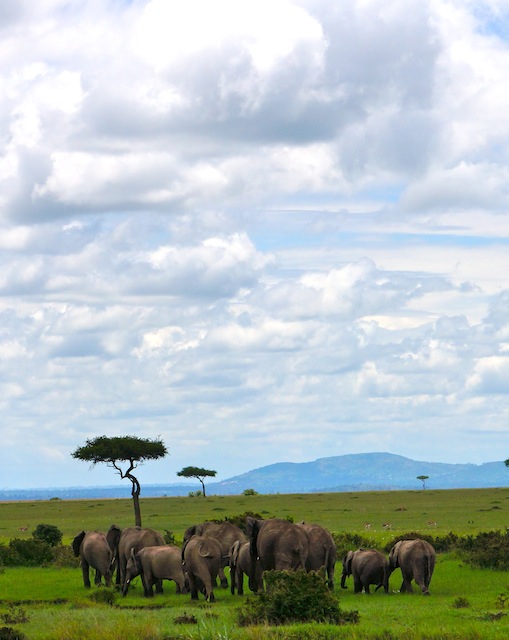
- Elephants on the move in the Mara North Conservancy, Kenya.
The Mara Elephant Project (MEP), is beginning year two (three years are currently funded for the program) and is working towards securing a future for elephants in the greater Mara Ecosystem. With expertise in elephant tracking technology, MEP has partnered with Kenya Wildlife Service (KWS), Mara North Conservancy and Richard’s Camp to develop a long-term, Elephant Tracking Project and Quick Response Unit to track elephant movement patterns and corridors and ultimately improve security of individual elephants through daily monitoring.
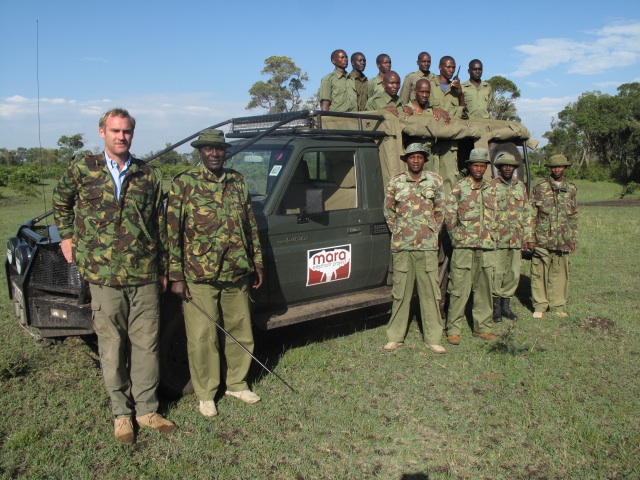
- Marc (right), leads the team of rangers for The Mara Elephant Project, Kenya. Photo is curtesy of Richard Roberts.
One of the unique functions of the GPS tracking used is capability to display elephant movements on Google Earth in near real time. This spectacular visual tool allows wardens, rangers, and community scouts to use the information to monitor hourly movements as well as engaging children in elephant conservation.
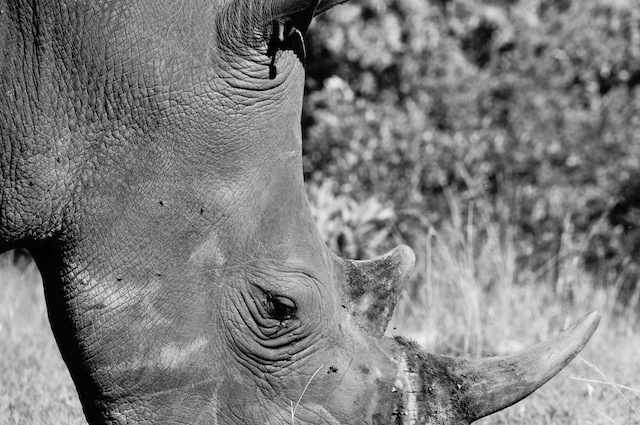 Rhino, Masai Mara, Kenya.
Rhino, Masai Mara, Kenya.
The poaching of wildlife and namely elephants and rhino, is not new. However, the problem is growing in severity. In fact in February of this year, the shooting of 200 elephants in Camaroon garnered international attention. According to The Economist:
“IT IS a bad time to be an elephant, particularly in Africa. Almost 24 tonnes of illegally harvested ivory were seized by investigators in 2011—the largest haul since records began in 1990 and more than twice the amount in 2010. Traffic, a wildlife watchdog, reckons around 2,500 elephants must have died to produce so much ivory. This year could be worse. More than 200 elephants were killed in a single state of Cameroon in the first six weeks of 2012”.
Elephants are primarily poached for their tusks and rhino for their horn. The Mara Elephant project and other anti-poaching organizations work in Kenya and other areas of Africa to educate the local population on the importance of international tourism to their local economies. Wildlife is the primary reason that tourists visit Kenya and other African countries. Without international visitors, many new revenue generating businesses for locals, donations and tourism dollars would disappear. It is imperative that locals understand the importance and receive the benefit of the tourism dollars coming in from wildlife viewing.
Wildlife preservation isn’t limited to Kenya, companies like Wilderness Safaris, have educational conservation programs for children. In fact they launched, “Children in the Wilderness”, where 450-550 kids from the seven countries Wilderness operates are flown once per year by the company to learn about wildlife conservation and to have the Wilderness experience.
Programs such as “Children in the Wilderness” and the Laikipia Wildlife Forum (see Michael Dyer story below) are examples of how involving local communities ensures their support and a positive result. Only through education and active involvement, will locals learn to understand that eating bush meat hurts the eco-system and that each of them play a key role in informing authorities that there are poachers working in the area.
For more information or to see how you can help: Mara Elephant Project
